April 23, 2024
Beyond the Basics: Supercharge Your Savings with These Budgeting Tips

When the food tastes amazing, the gold sparkles too brightly, and the movie makes us laugh uncontrollably, it’s super easy to spend too much money, right? Before you know it, your hard-earned cash is disappearing into thin air, leaving you scrambling to pay the bills? In today’s fast-paced world, it’s all too easy to lose control of our finances, but it doesn’t have to be that way. Budgeting is the antidote to financial chaos. Here, we’ve curated some straightforward yet powerful budgeting tips to help you regain control of your finances.
Picture waking up with confidence, knowing exactly where your money is going and how to make it work for you. If you’re ready to break free from the cycle of financial stress, you’re in the right place.
Dive into a treasure trove of budgeting tips designed to supercharge your savings and empower you to take control of your financial destiny. It’s time to say hello to financial freedom and goodbye to money worries once and for all. Let’s venture into this journey together and harness the transformative power of budgeting to reshape your financial future.
Essential Budgeting Tips for Managing Your Money Effectively
Budgeting is a powerful tool that can help you gain control of your finances and secure a brighter future. By creating and sticking to a budget, you can better understand your income and expenses, identify opportunities to save, and work towards achieving your financial goals. In this comprehensive guide, we’ll explore the essential budgeting tips and strategies that can transform your financial landscape.
Whether you’re trying to pay off debt, save for a down payment on a home, or simply gain a better handle on your finances, this guide will provide you with the knowledge and tools you need to succeed. So, are you ready to take control of your finances and start your journey towards financial freedom? Let’s dive in and discover the power of budgeting together.
The Importance of Budgeting
Budgeting is the foundation of sound financial management. By creating a budget, you gain visibility into your income and expenses, allowing you to make informed decisions about how to allocate your funds. The benefits of budgeting include:
- Savings & Debt Reduction: A well-structured budgeting strategy helps you identify opportunities to save money and accelerate debt repayment, ultimately improving your financial health.
- Goal Achievement: Budgeting enables you to align your spending with your financial goals, whether it’s saving for a down payment, funding your retirement, or taking a dream vacation.
- Reduced Financial Stress: When you have a clear understanding of your inflows and outflows, you can avoid surprise expenses and better manage your money, leading to decreased financial anxiety.
Understanding the Budgeting Process
The budgeting process involves several key steps:
 Determine Your Income: Start by calculating your monthly net income, which is the amount of money you have left after taxes and other deductions.
Determine Your Income: Start by calculating your monthly net income, which is the amount of money you have left after taxes and other deductions.- Track Your Expenses: Categorize your expenses into essential (rent, utilities, groceries) and discretionary (entertainment, dining out) categories. Use tools like receipts, bank statements, and expense tracking apps to monitor your spending.
- Create a Budget: Allocate your income to your various expense categories, ensuring that your necessary expenses are covered and that you’re settingaside funds for savings and debt repayment.
- Implement and Adjust: Stick to your budget and review it regularly, making adjustments as your financial situation or priorities change.
By following this process, you can develop a comprehensive budgeting strategy that aligns with your unique financial situation and goals.
Benefits of Budgeting
The benefits of creating and sticking to a budget are numerous. Budgeting can help you:
- Reduce debt and achieve financial stability
- Save money for future goals and emergencies
- Gain better control over your spending
- Reduce financial stress and anxiety
- Align your spending with your values and priorities
Implementing effective budgeting tips is a crucial step towards taking control of your finances and securing a brighter financial future.
Common Budgeting Mistakes to Avoid
- Failing to track expenses accurately
- Not allocating funds for savings and debt repayment
- Underestimating or overlooking certain expenses
- Relying on willpower alone without a structured budget
- Neglecting to review and adjust your budget regularly
By being mindful of these potential pitfalls, you can create a budgeting system that works for your unique financial situation.
Key Budgeting Strategies to Consider
- The 50/30/20 rule: Allocate 50% to necessities, 30% to discretionary spending, and 20% to savings and debt repayment.
- Zero-based budgeting: Assign every dollar of your income to a specific expense category.
- The envelope system: Divide your cash into envelopes for different expense categories to physically track and limit your spending.
Experiment with different budgeting methods to find the approach that best suits your needs and preferences.
By following the budgeting tips and strategies outlined in this guide, you can take control of your finances, achieve your financial goals, and enjoy greater peace of mind. Start your journey towards financial freedom today.
Determine Your Income and Expenses
The first step in creating an effective budget is to understand your income and expenses. This will provide the foundation for your budgeting strategy.
Calculating Your Monthly Net Income
Your net income is the amount of money you have available to spend and save each month. To calculate your net income, follow these steps:
- Determine your gross monthly income, which includes your salary, tips, commissions, and any other sources of income.
- Subtract any deductions, such as taxes, social security contributions, and health insurance premiums, to arrive at your net monthly income.
Identifying Your Expense Categories
Next, you’ll need to identify your various expense categories. These typically include:
- Housing: Rent, mortgage payments, property taxes, homeowner’s or renter’s insurance
- Transportation: Car payments, gas, insurance, public transportation
- Utilities: Electricity, water, gas, internet, cable/streaming services
- Food: Groceries, dining out, subscriptions (e.g., meal kits)
- Debt Payments: Credit card payments, student loans, personal loans
- Healthcare: Medical expenses, prescriptions, insurance premiums
- Personal Care: Haircuts, gym memberships, subscription services
- Entertainment: Dining out, movies, hobbies, travel
- Miscellaneous: Pet expenses, gifts, subscriptions, memberships
Tracking your expenses in these categories will help you gain a clear understanding of where your money is going and identify areas where you can potentially cut back.
Expense Tracking Techniques
There are several effective ways to track your expenses:
- Receipts: Keep a physical or digital record of all your purchases.
- Bank Statements: Review your monthly bank and credit card statements to identify your spending patterns.
- Expense Tracking Apps: Use apps like Mint, YNAB, or Personal Capital to automatically categorize and monitor your expenses.
Regularly reviewing your expenses will help you identify areas where you can optimize your spending and allocate funds more effectively.
Create a Realistic Budget
With a clear understanding of your income and expenses, you can now create a budget that aligns with your financial goals and priorities.
Budgeting Methods to Try
There are several budgeting methods you can consider:
- 50/30/20 Rule: Allocate 50% of your income to essential expenses, 30% to discretionary spending, and 20% to savings and debt repayment.
- Zero-Based Budgeting: Assign every dollar of your income to a specific expense category, ensuring that your total income and expenses balance out.
- Envelope System: Divide your cash into envelopes for different expense categories, allowing you to physically track and limit your spending.
Choose the method that best aligns with your financial situation and personal preferences.
Setting Financial Goals
Establish clear financial goals to guide your budgeting process. These goals can include:
- Paying off high-interest debt
- Building an emergency fund with 3-6 months’ worth of expenses
- Saving for a down payment on a home
- Investing for retirement
- Planning a dream vacation
Align your budget with these goals to ensure that your spending and saving habits support your long-term financial well-being.
Prioritize and Cut Expenses
Once you’ve created your budget, it’s time to identify areas where you can reduce your spending and optimize your allocations.
Distinguishing Discretionary and Non-Discretionary Expenses
Non-discretionary expenses are essential, non-negotiable costs, such as housing, utilities, and debt payments. Discretionary expenses are optional and can often be reduced, such as entertainment, dining out, and personal care.
Strategies to Reduce Expenses
Here are some effective strategies to cut back on your expenses:
- Housing: Consider downsizing, negotiating rent, or finding a roommate to reduce housing costs.
- Transportation: Opt for a more fuel-efficient vehicle, use public transportation, or explore carpooling options.
- Food: Meal plan, cook at home, and take advantage of grocery store loyalty programs to save on food costs.
- Entertainment: Limit dining out, cancel unused subscriptions, and find free or low-cost activities.
By identifying and reducing your discretionary expenses, you’ll free up funds to allocate towards your financial goals.
Allocate Money to Savings and Debt Repayment
Budgeting isn’t just about managing your expenses – it’s also about building a solid financial foundation through savings and debt repayment.
Importance of an Emergency Fund
An emergency fund is a crucial safeguard against unexpected expenses, such as medical bills, car repairs, or job loss. Aim to save 3-6 months’ worth of living expenses in an easily accessible savings account.
Techniques for Paying Down Debt
Use strategies like the debt snowball or debt avalanche method to aggressively pay down high-interest debt. The debt snowball method focuses on paying off the smallest debts first, while the debt avalanche method targets the highest-interest debts.
Automating Savings Contributions
Set up automatic transfers from your checking account to your savings account to ensure that you’re consistently contributing to your financial goals. This “pay yourself first” approach helps make saving a habit.
Monitor and Adjust Your Budget
Budgeting is an ongoing process, and it’s essential to regularly review and adjust your budget as your financial situation changes.
- Reviewing Your Budget Regularly – Set aside time each week or month to review your budget and track your progress. This will help you identify areas where you may be overspending and make necessary adjustments.
- Staying Accountable to Your Budget – Share your budget with a trusted friend or family member to hold yourself accountable. You can also use budgeting apps or tools that provide reminders and notifications to keep you on track.
- Adapting Your Budget to Life Changes – As your income, expenses, or financial goals change, be prepared to adjust your budget accordingly. Remain flexible and open to making modifications to ensure your budget continues to serve your needs.
Budgeting Tools and Resources
To support your budgeting efforts, consider utilizing the following tools and resources:
Financial Apps and Software
- Mint: A comprehensive personal finance app that tracks your income, expenses, and credit score.
- YNAB (You Need a Budget): A zero-based budgeting app that helps you gain control of your money.
- Personal Capital: Offers a suite of financial planning tools, including a budgeting feature.
Budgeting Spreadsheet Templates
- Google Sheets Budget Template: A free, customizable budget template available in Google Sheets.
- Excel Budget Template: Microsoft Excel offers various budget templates to download and use.
Personal Finance Books and Blogs

- “The Total Money Makeover” by Dave Ramsey: A bestselling book that provides a proven plan for getting out of debt and building wealth.
- “I Will Teach You to Be Rich” by Ramit Sethi: Offers a step-by-step guide to managing your money and achieving financial goals.
- “How to Achieve Financial Freedom” by Goodwhale : A finance management blog with investment tips and money-saving strategies. Read blog here.
By utilizing these tools and resources, you’ll be well on your way to mastering the art of budgeting and achieving your financial objectives.
Conclusion
Budgeting is not just a financial tool – it’s a powerful catalyst for transformation. When you take control of your finances through a well-crafted budget, you unlock a world of possibilities — you will get to know yourself more, your values, and your life situation. Remember, budgeting is a lifelong journey, not a one-time destination. As your needs and aspirations evolve, your budget must adapt with you. With unwavering discipline and a steadfast commitment, you can cultivate healthy financial habits that will serve you for years to come.
This comprehensive guide has equipped you with the strategies and insights to create a budget that aligns seamlessly with your unique goals and circumstances. Embrace this opportunity to secure a brighter, more prosperous future. By mastering the art of budgeting, you’re not just managing your money – you’re investing in your dreams, your security, and your ability to weather any storm that comes your way.
The road ahead may have its challenges, but the rewards of financial freedom are truly priceless. The road to financial freedom may be an entire staircase, but remember, you only need to take this first step today and embark on a journey that will transform not just your finances, but your entire outlook on life. With budgeting as your trusted ally, the possibilities are endless, and the future is yours to shape.
So, what are you waiting for? Start your budgeting journey now and take the first step towards the financial security and independence you deserve. The path to financial freedom begins with a single budget – yours.
Explore the GoodWhale blog for invaluable insights on achieving financial freedom. Discover a wealth of additional advice and resources to empower your journey towards financial independence.



